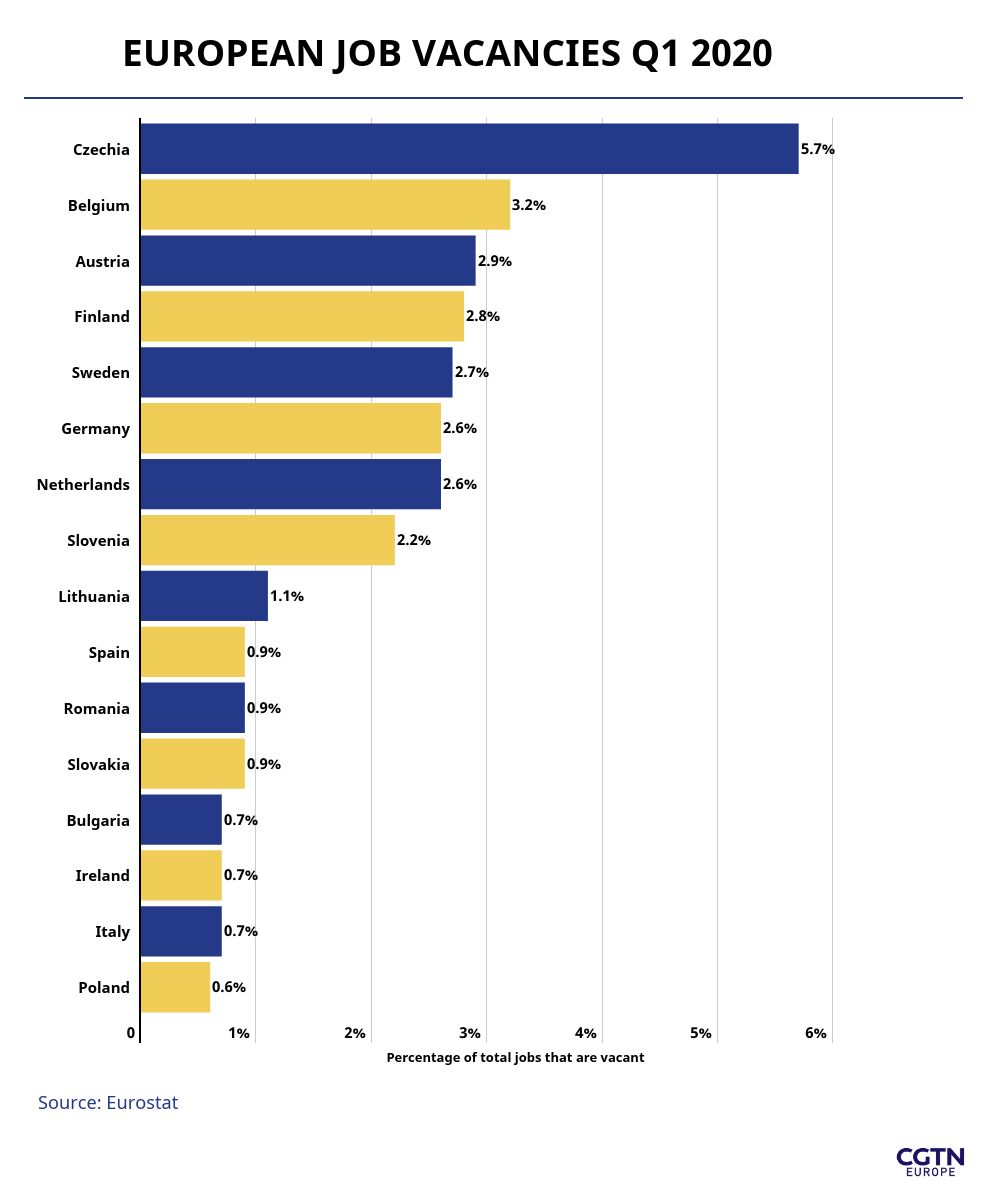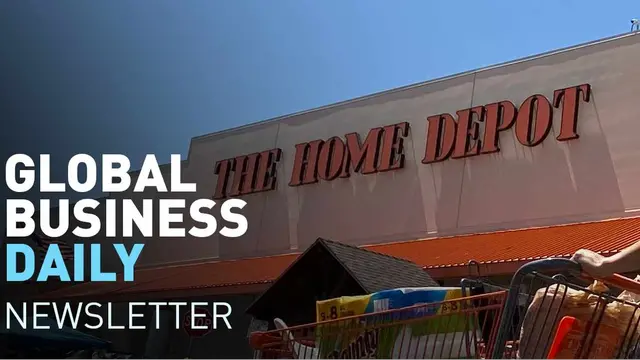"Everyone has seen during this crisis that drugs that seemed to be commonplace were no longer produced in France and Europe … We must do something about it."
French leader Emmanuel Macron was speaking to the media to announce more than $900 million for his country's pharmaceutical industry, in conjunction with drug maker Sanofi.
The headlines today reflect the complexity of a global pandemic and its outcomes.
Although the funding of national research and production is a good thing, it comes against the backdrop of mounting job losses across the global economy. Today it was revealed that more than** half a million people** in the UK lost their jobs between March and May.
Other countries have increased their support for local economies, with the Bank of Japan adding to its bailout and tipping it over the ** $1 trillion mark** .
Meanwhile, as the U.S. continues to reopen its economy, retailers reported a rise of nearly 18 percent, month-on-month. Although year-on-year figures are still in decline, the fall is not as steep as in previous months.
And finally, in today's graph we look at the other side of unemployment figures: ** how many jobs are actually available in Europe** ?
Happy reading,
Patrick Atack
Digital business correspondent
P.S. Did you know we send this briefing by email, too?
You can sign up to receive it here.
New payroll figures show at least
600,000 people in the UK
have lost their jobs between March and May, the period during which the country instigated COVID-19 lockdown. Trade unions called the news a "red alert," while economists warned more job losses would come.
Electric car firm Tesla has signed a deal with Glencore to source vital cobalt from the mining firm. The move increases the Silicon Valley company's reliance on materials from the Democratic Republic of Congo, though Tesla said it ensured its suppliers "meet our social and environmental standards."
New retail figures from the U.S. show shoppers returned to reopening stores in May with much enthusiasm. The near-18 percent rise was a monthly record (since 1992). However, sales numbers were still 6 percent below May 2018, showing the continuing effect of the pandemic.
In the midst of all the volatility on financial markets, China Pacific Insurance (CPIC) has launched a listing on the London stock exchange to raise up to $2.15 billion.
The Shanghai-headquartered insurer said it is looking to raise funds for its overseas expansion activities.
The Bank of Japan has increased its economic bailout to more than $1 trillion, but central bank governor Haruhiko Kuroda said it could be several years before any interest rate changes.
The former chief of China's insurance regulator was sentenced to 11 years
and fined $212,876 on bribery charges at a court in Changzhou, in China's Jiangsu Province. Prosecutors said between 2005 and 2017, Xiang Junbo took advantage of his posts as senior official of the People's Bank of China, the Agricultural Bank of China, and then CIRC, offering to illegally help some organizations.
Perhaps spooked by U.S. President Donald Trump's interest in the pharma firm CureVac, the German government today announced it would purchase a 23 percent stake for $337 million. The company is due to start clinical trials for a COVID-19 vaccine this month.
Fast food chain McDonald's said its limited reopening of stores has begun to steady its global sales decline. After a 39 percent fall in April, the decline was 21 percent in May. The burger chain said it would spend $200 million on advertising, as part of its crisis plan.
ABC News, the U.S. channel owned by Disney, has suspended one of its top executives over reports of racism and other inappropriate actions. Barbara Fedida, senior vice president for talent, editorial strategy and business affairs, said the allegations published by
The Huffington Post
were "misleading."
The Dutch economy – the eurozone's fifth largest – is set to contract by a record 6.4 percent, according to the Bureau for Economic Policy Analysis (CPB). The Bureau said the projections were uncertain, due to the unpredictable nature of the pandemic.
Faster-than-expected growth in China has led Swedish tech firm Ericsson to up its forecasts to 190 million 5G subscriptions by the end of the year. The equipment manufacturer previously said it expected 100 million subscriptions.
French supermarket chain Carrefour has teamed up with Google to launch a voice-based grocery shopping service. It will work through Google Assistant, a voice-activated program on smartphones and devices, and is aimed to "further accelerate the trajectory of e-commerce at Carrefour," according to the retailer.
French President Emmanuel Macron said the country would invest $224 million in domestic medicine research and production, in a deal with one of the top French pharmaceutical firms Sanofi. The drug maker is also investing $685 million in two sites in France.
03:32
The fight against COVID-19 could be made far easier if those infected develop an adequate level of immunity, through the development of antibodies. Conversely, if reinfection cases are confirmed, the battle to suppress the disease will be much harder.
Yasser Louati is a campaigner and head of 'Justice and Liberty for All Committee' based in Paris. He spoke to CGTN Europe about the similarities between protests in the U.S. and those in Europe.
Talk us through the parallels between what's happening in the U.S. and there in France and the rest of Europe, where thousands are protesting.
It's to do with the way France deals with minorities, black, brown, Arabs, Muslims in the 'banlieue' and the way America does the same thing with African-Americans, Latinos and marginalized groups. We have a state that has been implementing repressive measures against these marginalized groups. And today, people are saying enough is enough. You're calling out racism that has been taking place for over 50 years in France. But we see the government not taking that seriously. And today we are seeing actually a blatant contradiction between the state's approach to racism, the moral anti-racism, and the minorities who are living through it. Because of state brutality, the police, state of emergency measures, for example, and saying we need political answer to our grievances.
The case of Adama Traoré does not overshadow the fact we have dozens of blacks and Arabs being killed by the police for the past 15, 20 years. And we have to return again to 2005 to remember that social upheaval in 2005 was transformed into an ethnic rebellion in order not to tackle social demands, equal access to work, housing, education, etc... So, today if people in France do identify what's happening in the U.S., this puts into question the policies adopted by Western countries and the U.S., the UK or France or Germany are experiencing the same level of demonstrations, this sheds light on the obscene amount of inequalities in these countries, especially when it comes to racism.
What needs to happen next for lasting political change to happen?
Where the anger is here. We have to remember, this is taking place after the lockdown, which lasted about two-and-a-half months, with lots of video footage of police brutality beating down Arab and black kids in their banlieue, the [heavily] ethnic suburbs. While, you know, hugging and shaking hands with 'white-right' violators of the lockdown. And this created an intense amount of frustration and disgust.
And now the lockdown has been lifted, people are taking to the streets. Now, for this to last, organizations, like all of us, have to capitalize on this anger and turn it into political demands: defunding the police or abolishing the police, put into question the doctrine of maintaining order or the technique of arrest. And then further, the police has been running amok for decades without answering [the public demands]. We also need the proper supervision of the police. Meaning that civil society has to be able to keep the police in check. And for police officers accused of brutality, if not outright racist crimes, to be dragged to court. So far, we don't see that happening. But the demands are gaining momentum. And make no mistake about it, people are still angry. It won't stop tomorrow.
Today, our top story focuses on job losses ** – but the other side of that coin is the jobs that are available but unfilled.**
Here we've looked across Europe, and highlighted countries with a high rate of vacancies, as well as those with notably low levels.

 简体中文
简体中文












